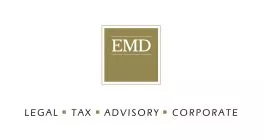The economic and financial crisis has led to stricter credit terms for clients to obtain credit from banking institutions. This has led to the creation of niche Financial Institutions providing short-term, unsecured loans to clients who may need a small amount of money. This activity is commonly known as micro lending, short term loans or payday loans.
A number of operators in this field have found Malta to have the right regulatory framework for this type of activity. In fact, the Malta Financial Services Authority (MFSA) has already licensed a number of institutions carrying out the business of lending, specializing in short-term unsecured loans.
An institution providing micro lending is able to grant loans of small amounts to borrowers, which need to be paid within a period ranging from 30 days to 6 months. These loans are often required by clients who are in emergency financial situations and who satisfy the stipulated minimum requirements posed by the institution concerned. These usually include the provision of personal information and a steady income.
There is no fixed interest rate cap in Malta, however any APR charged should be a reasonable amount for the short term lending market and the amount of the loan granted has to be proportionate to the income of the individual.
Full disclosures of all charges, fees and any risks of pay day lending would have to be made to the clients.
Once a pay day lender obtains authorisation in Malta as a Financial Institution, it is possible to lend to clients overseas by means of reverse solicitation.
The Application Process
The application process may be divided into three phases, namely (1) Preparatory Stage; (2) Pre-licensing stage and (3) Post-Licensing/Pre-Commencement of Business Stage.
Preparatory stage
We have a very good working relationship with the MFSA and have on various occasions advisedand assisted clients in obtaining a financial institution licence. Initially, a statement of intent is submitted to MFSA following which a preliminary meeting with the MFSA may be held in order to discuss the statement of intent. After all queries/pending issues are settled, a draft Licence application form is submitted via the MFSA Licence Holder portal together with the supporting documentation required such as the detailed business plan and any audited accounts, Personal Questionnaire forms, Memorandum and Articles of Association and supporting Board resolution.
The application and documentation are then reviewed by the regulator. The MFSA may ask for more information and may make such enquiries as it considers necessary together with any 'fit and proper' checks.
Pre-licensing stage
Once the draft application and supporting documents have been reviewed and the draft licence conditions have been agreed to, the MFSA will determine whether to issue its 'in principle' approval for the issue of the licence. Any outstanding matters such as company incorporation and the final copies of the documentation are to be settled at this stage.
The licence is issued once all pre-licensing issues are resolved.
Post-Licensing/Pre-Commencement of Business Stage
In certain cases, the applicant may also be required to satisfy a number of post-licensing matters prior to formal commencement of business.
It is estimated that the global microlending market size was valued at USD 134.35 billion in 2019 and is projected to reach USD 343.84 billion by 2027.
EMD can assist with the structuring, setting up and licensing of financial institutions providing micro lending, pay-day loans and short-term lending.
The content of this article is intended to provide a general guide to the subject matter. Specialist advice should be sought about your specific circumstances.

